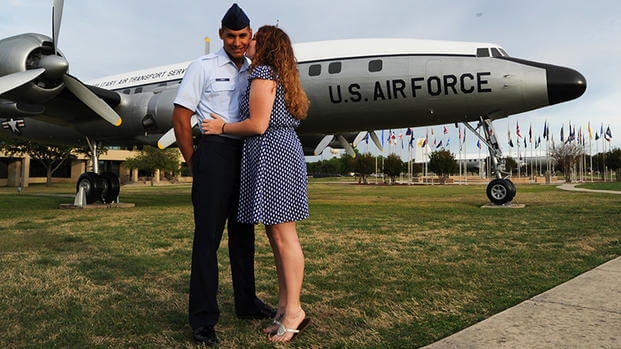A Defense Department office is on the prowl to make sure the caregivers of wounded and ill service members -- including those who don't really think of themselves as caregivers -- have access to the resources they offer.
You've probably heard of the Med-Board process (also known as the "Integrated Disability Evaluation System"). But you may not have heard about the DoD level office that oversees it and the many other things they offer veterans and their families.
The Office of Warrior Care Policy has been around since 2008 to integrate all the different DoD wounded warrior care programs like IDES, the adaptive sports program and caretaker support into one office. But until now, said James Rodriguez, the deputy DoD secretary who oversees the office, they haven't done a good job of getting information out to the people they might be able to help. That's why they had a booth last month at the Association of the United States Army (AUSA) annual conference -- to let people know what they do.
"We need to do a better job of communicating what the roles of caregivers are in general so people can look at themselves and say 'I do this on a daily basis -- maybe I do fall into a caregiver category,'" he said.
The office offers four programs specifically for military spouses and family members. The first, the Special Compensation for Assistance with Activities of Daily Living (SCAADL -- not the world's longest acronym but it feels like it might be close) gives cash to the service member and his family if he receives full time care at home from a family member rather than be housed in residential institutional care. You probably have only heard of that program if your service member is very injured.
The remaining programs are designed to support caregivers and hook them up with resources. Military Caregiver PEER Forums (PEER is - no surprise - an acronym. It means "Personalized Experiences, Engagement and Resources) meet on 70 military installations across the U.S. and are designed to be support groups for caregivers and their ill or injured troop. A Military Families Learning Network aims to connect caregivers with topics that can help them better assist their service members. And, finally, a Caregiver Resource Directory aggregates hundreds of vetted organizations into a handy-dandy booklet with their web address and a brief description of what kinds of things they do. You can go here to find out more information about all of these resources.
One of the things officials have recently realized is that many caregivers are often not the categories of people who have traditionally filled the role. And many caregivers don't recognize themselves as being such. But any person who helps a service member deal with an injury -- big or small -- is a caregiver, Rodriguez said, and has access to his offices' resources.
"We also know that a caregiver could be any one -- could be a friend, could be a social worker," he said. "['Caregiver'] is a definition that's fluid because we are finding out sometimes there are people that are providing support in the caregiver capacity that we didn't realize were providing support."
Photo courtesy U.S. Air Force.









